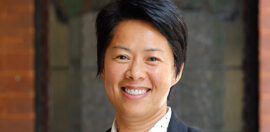A Humanitarian Approach to Change
4 May 2015 at 11:18 am
As an Australian humanitarian with experience working in over 30 countries, Matt Darvas knows what it means to give something his all. Darvas is this week’s Changemaker.
 ?Darvas is as a dedicated humanitarian and passionate storyteller, working with some of the world’s largest NGOs.
?Darvas is as a dedicated humanitarian and passionate storyteller, working with some of the world’s largest NGOs.
He is currently based out of Nepal where he works as a development consultant and freelance communicator. He spoke to Pro Bono Australia News shortly before the recent massive earthquake hit the country.
His popular blog focuses on equipping and inspiring others to realise their potential to make a difference.
What are you currently working on in your organisation?
Right now I am a freelance communicator and humanitarian based in Nepal, though I travel regularly to work on storytelling and advocacy projects for organisations and campaigns including World Vision, Compassion and the International Nepal Fellowship.
What drew you to the Not for Profit sector?
As a wide-eyed backpacker, I was deeply affected by a conversation I had with a young Cambodian book hawker at the Angor Wat ruins in Cambodia. It would turn out to be a conversation that changed my life and set me on course to the career I have today.
We started chatting and soon discovered that we were the same age (I was 18 at the time) and both eldest sons in our families. Though that’s where the similarities ended. As we traded questions, he discovered that I was a student of law, that my parents were both medical professionals and that I lived in a country where the Government actually loaned me money to study. He had also been a student – studying english with the vision to equip local community members to earn roles as well paid tourist-guides – but was forced to withdraw from studies when his mother had passed away. With his father as the only breadwinner (a local fisherman who made the equivalent of approximately $2 AUD a day to support a family of eight) they could not afford the $14 AUD a term required for his tuition.
Here was a young man exactly the same as me in so many ways, full of potential, ambition, and drive, and yet just because I was born in Australia, and he in Cambodia, our opportunities were worlds apart. I’d later hear Tim Costello, CEO of World Vision Australia, articulate as this as, “the lucky lottery of life”.
We don’t determine the life we are born into but we can determine what we do with it.
I knew then I’d spend my life in pursuit of breaking down these barriers of inequality and injustice.
What was your first job in the Not for Profit sector?
I got my start in the sector as a youth advocate for World Vision Australia, where several generous staff there took the time to invest in me, nurturing my passion and skills in the sector. I now make it a priority to do the same, and aim to be mentoring two to three young leaders at any given time who are trying to get started in the sector.
What is the most rewarding part of your work?
If we are to take seriously our role as humanitarians, advocates and social entrepreneurs, we have to be about finding the most strategic ways to empower individuals and groups to realise their own agency and potential to create change.
We recently sat with a self help group in a small village in Nepal, which had been started more than 17 years ago by the NGO my wife works for. Despite having ‘pulled out’ of the community 12 years prior, the self help group was still utilising the ‘Group Action Model’ (where communities learn to identify, and solve their own development issues using collective savings and resources) to bring about incredible change in the areas of health, education and income generation.
But what was most exciting and thrilling for us as development workers, was that whilst they were using the techniques and model introduced originally by the NGO, an entire generation had since passed, and the current self help group members had no idea who we were nor the organisation we represented! That’s as good as it gets for any development worker, when communities don’t need you any longer. We should always be working ourselves out of a job.
What has been the most challenging part of your work? And how do you overcome that?
My wife and I are incredibly intentional about not ‘removing’ ourselves from the circumstances and struggles facing those we are trying to help. That means life gets messy, unpredictable and even dangerous on an all too regular basis for us.
What does this look like in a reality? It’s living in the communities we work with and opening our home to the poor, hurting and lonely. It’s risking our safety to reach isolated communities deep in the Himalayas when news headlines tell of one fatal accident after another on the exact same roads. It’s investing blood, sweat and tears into projects that can easily fail because of circumstances beyond our control.
We overcome all of this through constantly reminding ourselves and embracing the truth that, “If we are to work in solidarity for those in our society who experience no comfort, security or certainty due to their poverty and powerlessness, how can we expect our own lives to remain unaffected by the same challenges?” It’s a small price to pay for the joy we receive in seeing our neighbours and our friends empowered and released from poverty.
Favourite saying …
I’ve heard a mentor of mine – a sharp entrepreneur with a long history of philanthropic involvement – challenge audiences and individuals alike with the saying, “Don’t let the good you’re already doing stop you from doing more.” It’s easy to sponsor a child, give to a project or even start your own not-for-profit and think, “I’ve done my bit.” But real philanthropy knows there’s no ‘enough’ in what we can do and what we can give to tackle the worlds greatest challenges.
I’m always being asked …
“What do I need to study to be a ‘development worker’?”
There’s been an influx in the number of institutions offering courses in ‘International Development’. Here’s my advice. Make your undergraduate or trade in a ‘hard’ skill (business, science, engineering, education etc.) and then consider Postgraduate studies in International Development in order to learn how to best apply your specialisation to specific needs in the development sector. I meet a lot of International Development undergrads working in cafes long after finished uni.
What, or who, inspires you?
Whilst Western culture continues to ‘secularise’, there is a strong tradition of social justice and care for the poor that I find myself wrapped up in and inspired by as a person of faith. Many of the greatest reformers in Western history were men and women of faith who found themselves on the front lines of some of history’s greatest movements, including those for civil rights in America, emancipation and the abolition of slavery. Their strength, and their ability to envision a future radically different from the unjust circumstances they faced, steadies my resolve in times of trial, and helps me to realise I do not labour in vain or on my own.







